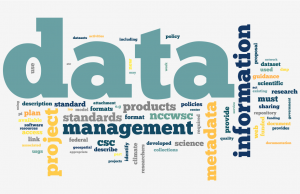The CyberBRICS project has a triple aim: to map existing regulations; to identify best practices; and develop policy suggestions in the areas of cybersecurity governance, Internet access and digitalisation of public services in the BRICS countries (Brazil, Russia, India, China and South Africa). The project is hosted by Fundação Getulio Vargas (FGV) Law School and developed in partnership with the Higher School of Economics, in Moscow, Russia; the Centre for Internet and Society, New Delhi, India; the Fudan University, Shanghai, and the Hong Kong University, China; and the University of Cape Town, Cape Town, South Africa.
The project stems from the consideration that the next billion users, together with the innovation and data they will produce and the policy they will need, will likely come from the BRICS. In light of this consideration, BRICS countries are increasing their information sharing and cooperation in the fields of science and technology and promoting synergies between member countries with regard to digital policies. While the first book produced by the CyberBRICS Project explored the "Cybersecurity Regulations in the BRICS Countries" (an open access non-edited version of the book is available here), the next book project in the CyberBRICS research aims at exploring how the BRICS countries engage with the different facets of the Digital Sovereignty debate.
Digital Sovereignty in the BRICS: While once imagined as an instrument for a borderless "global village," the Internet is currently undergoing complex processes of re-nationalization (e.g. China, Russia, India) and regionalization (e.g. EU). BRICS countries, like many others around the world, are grappling with conflicting sets of realities and desires: individual privacy and national security, data localization and cross-border data flows, digital independence and international technological trade, often driven by concurrent national priorities, international commitments, and ambitions for global expansion and influence.
The book volume aims at offering answers to such compelling questions, providing valuable – and so far, very limited – insights on digital policies of the BRICS grouping, with particular regard to evolving notion of Digital Sovereignty and its heterogeneous interpretations and practices. The publication wishes to gather contributions based on rigorously collected evidence that can be used by researchers, regulators, and businesses alike. Authors of selected contributions will be invited, with the help of a limited number of travel grants, to present their draft papers at the BRICS Data Protection and Digital Sovereignty Conference, organised as a side event of the Latin American edition of the Computers, Privacy and Data Protection Conference (CPDP LatAm), in July 2021, in Rio de Janeiro.
Call for Papers: This publication aims at developing a ground-breaking interdisciplinary body of research on Digital Sovereignty by focusing on related discourses, legislations and regulations, and technological projects developed by BRICS countries to (re)assert their Digital Sovereignty. We welcome submissions from a wide range of disciplines such as communication, law, security studies, information science, political science, public administration, public policy, international relations, area studies, sociology, anthropology, etc. Suggested topics include analyses of, inter alia:
- The conceptualization of Digital Sovereignty in a specific member of the BRICS grouping or from a comparative perspective
- Taxonomies and categorizations of Digital Sovereignty
- Theoretical, empirical, or comparative analysis of data localization policies in BRICS countries
- Theoretical, empirical, or comparative analysis of cyber-industrial plans and strategies aimed at national self-reliance and independence in BRICS countries
- Analysis of infrastructural policies adopted by BRICS countries to interpret, implement and actualize sovereignty in cyberspace
- Tensions between national policies and international commitments, for instance, in international digital trade agreements, AI policies, and technological imports/exports
- Global South alliance and tensions among BRICS countries in their quest for alternatives to Silicon Valley-based development models
- BRICS countries' resistance to data colonialism from the Global North and new forms of data colonialism emanating from new digital powers (e.g. China's digital silk road initiative)
- Case studies analysing specific laws, regulations, or decisions of Digital Sovereignty (e.g. the Russian "Sovereign Internet Law", the Indian prohibition of 57 Chinese apps, etc.)
- Case studies exploring the use of specific infrastructure-related programmes and initiatives to implement Digital Sovereignty (e.g. the Russian "Runet" or the "Great Firewall of China")
- Case studies discussing how the digitalisation of specific public services contributes to the construction of a national Digital Sovereignty (e.g. the Indian "Aadhaar" Digital Identification system)
Abstract submissions are due on 15 February 2021. They should include the following elements:
- Title
- Extended abstract (1500-2000 words)
- Author's name, affiliation and short bibliographical note (in the body of the email)




 Name of the Speaker:
Name of the Speaker:


